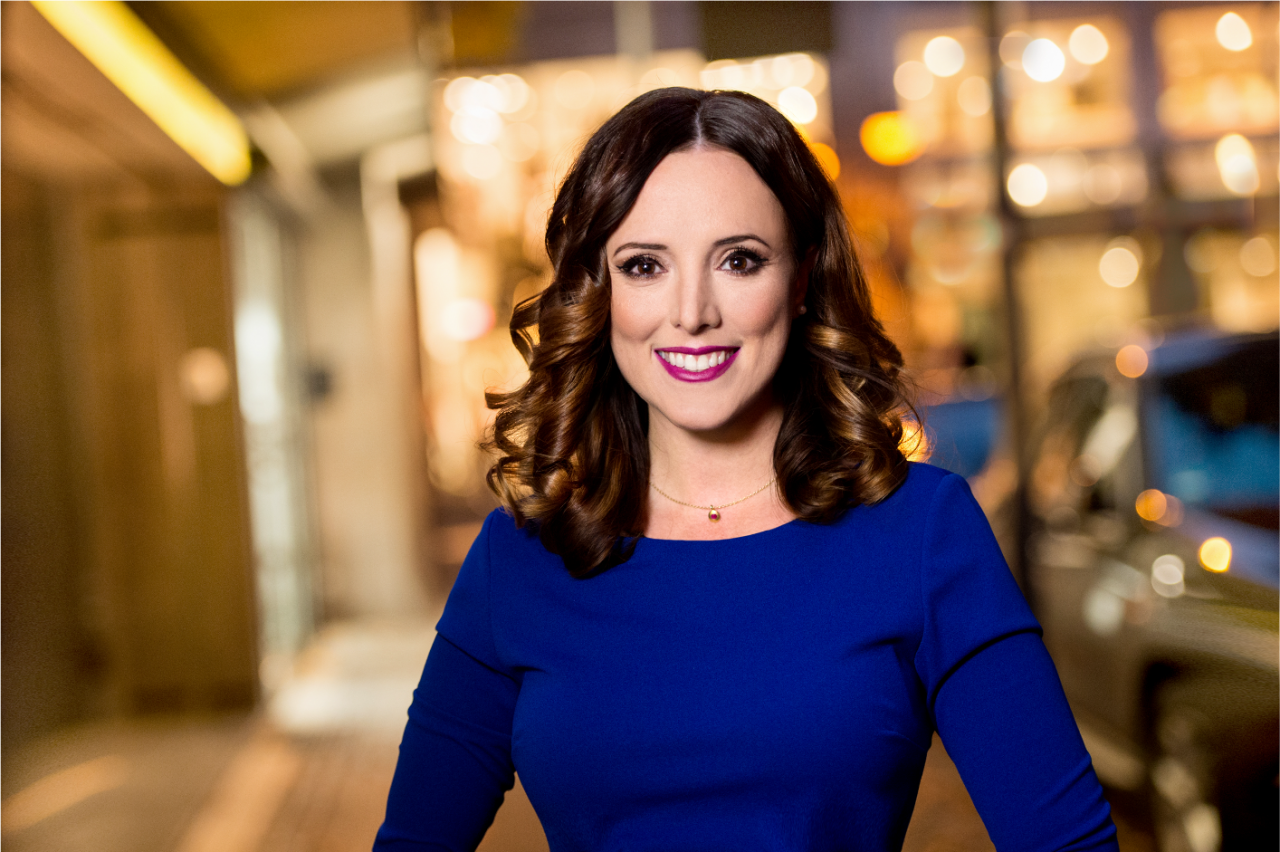Jessica Espinoza, VP for Private Equity at DEG/KfW, tells us how she is fighting on all fronts to advance gender lens investing and discusses her latest initiative to bring in more private capital.
CV
- 2X Challenge, Chair, 2020-present
- DEG/KfW, Vice President Private Equity & Venture Capital Investments, 2015-present
- ProCredit Bank, Member of the Management Board, 2012-15
- Microfinance Transparency, Africa Regional Office Director, 2009-12
- Alternativas Pacificas, Economic Empowerment Advisor, 2009-10
- ESB Business School, Reutlingen University Germany/Ireland, 2005-9
Jessica Espinoza is prone to understatement. She is the kind of person who does several high-profile jobs simultaneously and exceedingly well. She shrugs it off with “I wear several hats.”
Next to her main job as Vice President Private Equity and Venture Capital Investments at the German development finance institution DEG/KfW, she holds seven different board positions. She is also the Chair of the 2X Challenge, the high-profile global gender finance initiative founded by the G7 development finance institutions (DFIs).
Espinoza has been particularly busy at 2X Challenge where she “plays a coordinating role among investors”.
The ‘2X’ in the initiative’s name refers to the doubling economic effect of unleashing female talent. “The ripple effect of investing in women and girls has been well documented,” she tells Impact Investor.
Strengthening women’s economic empowerment has important multiplier effects. Women in developing countries reinvest up to 90% of their income into their families and communities, especially in nutrition, health and education, which constitutes a much higher rate compared to men.
Increased interest of DFIs and other investors is so important to bridge the gender finance gap.
“Covid put a spotlight on gender inequality, and this has led to an increased interest in the gender lens investing space,” according to Espinoza. This is fortunate, as she believes “venture capital funding of women-led startups actually dropped.” This is why the “increased interest of DFIs and other investors is so important to bridge the gender finance gap.”
Espinoza believes women’s education is a key driver for sustainable development. “DFIs can play an important role in upskilling, vocational training and creating pathways from education to employment.” One extra year of secondary school for girls can increase their future earnings by 15 to 25%.

Personal crusade
For Espinoza, gender equality is very much a personal crusade. “I have been promoting gender equality throughout my career. My first job straight out of college was empowering survivors of gender-based violence in Mexico.”
The country where she met her husband is still an important part of her focus. “I am very proud of the work I do on the board of Grupo Mega and their strategic positioning as the financial institution of choice for women entrepreneurs in Mexico.”
But now she’s mostly playing on a global level. The banker has ensured that the news from 2X has been coming thick and fast. Last month 2X announced it would raise $15bn for gender-lens investment after surpassing its original target of $3bn by more than 100%. The organisation says it raised $7bn between 2018 and 2020 and mobilised another $3bn from private investors.
Volume of deals quadrupled
Over the last 3 years, there have been over 200 deals, led by Latin American businesses. As part of the initiative, last year Proparco announced a loan of $20mn to Capital Bank which will support the development of SME lending in Panama (70%), as well as financial inclusion for women who manage or own SMEs (30%).
In the last twelve months, the volume of deals in Sub-Saharan Africa has quadrupled. An example of a recent deal was the pioneering $100mn fund, Alitheia IDF (AIF). This investment will support 13 high growth SMEs, creating quality employment of up to 23,000 direct and indirect jobs and enabling access to essential services for 5 million women and girls.
Espinoza stresses the importance of local context and building on the work of local women’s movements. “We don’t take a top-down approach from the outside. Rather we seek to draw in local partners who understand the local context.”
This can mean, however, drawing on international examples. “We often showcase peer-to-peer examples of how similar challenges have been overcome.”
Bringing in the pension funds
Espinoza is crafting a broader strategy. At the recent UN’s Generation Equality Forum in France, she launched The 2X Collaborative: a new industry body set up to promote investment in women and to expand gender lens investing practices to a wider group of commercial investors.
“We really want to up our game and be even more ambitious,” she says, adding this involves “drawing in some major players such as The World Bank’s IFC and the European Bank for Reconstruction and Development.”
Espinoza believes The 2X Collaborative will also “bring in the other major sources of global capital – the large pension funds and commercial asset managers.”
A hope given a significant boost when the Investor Leadership Network, which counts Allianz, calPERS, the California Public Employees’ Retirement System, and Generali among its fourteen members and has combined assets under management of over $5trn, said it would be giving its support to The 2X Collaborative.
Mapping out a path for investors
Espinoza is also turning her gender lens on the broad sweep of DEG’s investments. “With the consultancy Syspons we are screening DEG’s entire portfolio and developing a gender lens investing strategy across all asset classes, sectors and regions. We aim to map out a path for investors – what to do and how to measure your impact.”
In Thailand, DEG subscribed to Asia Pacific’s First Private-Sector Women Entrepreneurs Bonds issued by Bank of Ayudhya. This so-called ‘gender bond’ introduces special loans for women-run small and medium-sized businesses. It is something Espinoza says is particularly innovative and which she hopes to do more of.
Another example she likes to mention is DEG’s recent investment in BRAC Uganda Bank Limited, a bank promoting women’s economic empowerment. “We were able to bend our investment criteria a little bit because we really love the company and the business model and saw the gender impact,” she says. 98% of the customers are women entrepreneurs.
In Bangladesh, DEG’s client DBL Group employs some 13,000 women in clothing manufacturing. Together they have encouraged women and family-friendly HR policies such as proper childcare, women’s social clubs and a ‘fair price shop’ for employees. These have resulted in a halving of absenteeism and a 40% reduction in staff turnover.
In looking to the future, not surprisingly Espinoza is brimming with ideas and priorities, including more rigorous impact measurement frameworks. After all, as she concludes, “the way we allocate capital now will shape our future tomorrow.”






